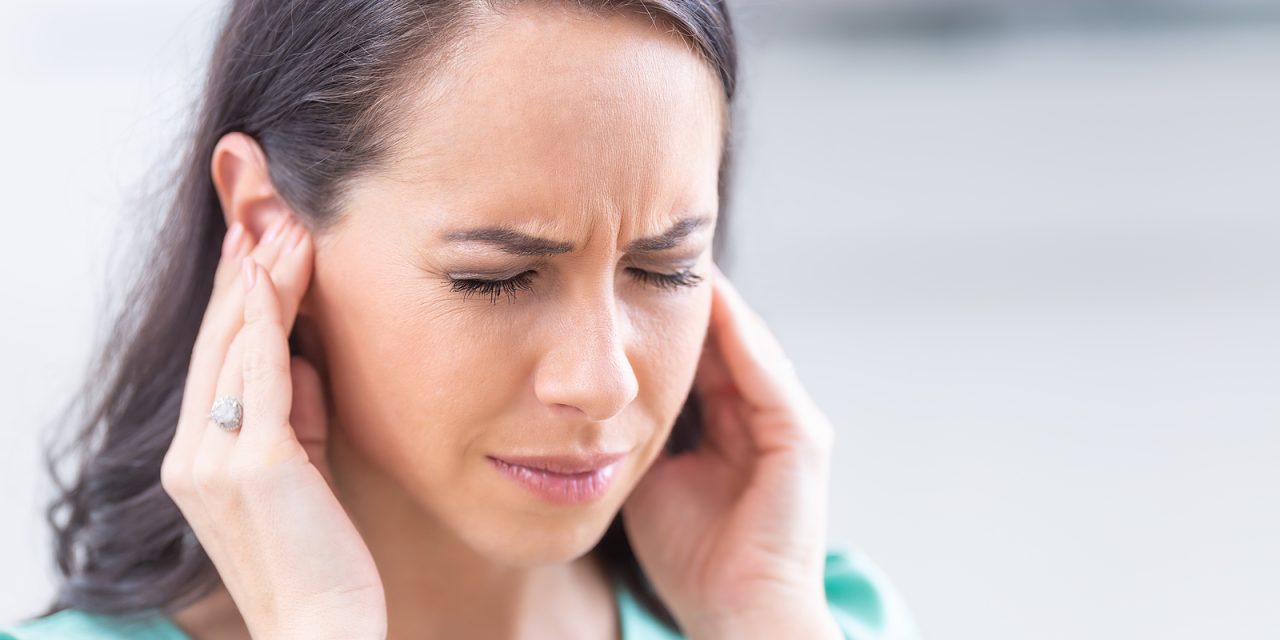Tinnitus is a condition characterized by ringing, buzzing, or hissing sounds in the ears without any external source. Millions of people experience this disruptive symptom, and finding ways to alleviate it can significantly improve quality of life. Understanding the various causes of tinnitus and available treatments can help individuals develop a personalized strategy to cope with the condition.

Many factors can contribute to tinnitus, such as exposure to loud noises, age-related hearing loss, ear infections, and certain medications. Seeking a proper diagnosis and targeting the root cause is essential in determining the appropriate course of action for managing tinnitus. Both medical interventions and lifestyle changes can play a role in reducing or eliminating the bothersome ringing sensation experienced by those affected.
Key Takeaways
- Tinnitus is a common symptom characterized by ringing, buzzing, or hissing in the ears without external sources.
- Seeking a proper diagnosis for tinnitus can help identify the cause and guide appropriate treatment options.
- Both medical and lifestyle interventions may be necessary to effectively manage tinnitus symptoms.
Understanding Tinnitus
Tinnitus is a condition characterized by hearing sound in the ear or head without any external source. This experience, often described as ringing, buzzing, or humming, can be intermittent or constant and varies in loudness. The condition affects about 15% to 20% of people, with a higher prevalence in older adults.
Causes of Tinnitus
There are several possible causes of tinnitus, including:
- Loud noise exposure: Prolonged exposure to high-volume sounds can damage the hair cells in the inner ear, leading to tinnitus.
- Aging: Age-related hearing loss can result in tinnitus.
- Disease: Some diseases, such as Meniere’s, can cause tinnitus.
- Blood vessel problems: High blood pressure or a blood vessel disorder can contribute to tinnitus, mainly if it is pulsatile.
- Tumors: In rare cases, tinnitus can be caused by a tumor on the hearing or balance nerves.
Symptoms of Tinnitus
Tinnitus manifests as various sounds, including:
- Ringing
- Buzzing
- Hissing
- Clicking
- Pulsating (in cases of pulsatile tinnitus)
These sounds can occur in one or both ears and may be consistent or come and go. In some cases, the intensity of the tinnitus can make it difficult to concentrate or sleep.
Types of Tinnitus
Tinnitus is classified into two main types:
- Subjective tinnitus is the most common form, where only the person with tinnitus can hear the sounds. It is usually caused by problems with the auditory nerves or the parts of the brain responsible for processing sound.
- Objective tinnitus: This is a rare form in which an external observer, such as a doctor, can hear the sounds during an examination. Objective tinnitus is typically associated with blood vessel problems, muscle contractions, or issues with bones in the inner ear.
Diagnosing Tinnitus
Medical History Review
A crucial step in diagnosing tinnitus is conducting a thorough medical history review. During this process, a doctor or an audiologist will ask about the patient’s symptoms, any medications they are taking, and their history of noise exposure or ear infections. This information is crucial for understanding the possible causes and determining the most appropriate course of action.
Hearing Test
After reviewing the medical history, an audiologist will likely conduct a hearing test to assess the patient’s hearing ability and identify any potential abnormalities. This test might include:
- Pure-tone audiometry: Measuring the quietest sounds a patient can hear at different frequencies.
- Speech audiometry: Evaluating the patient’s ability to understand speech, even in noisy environments.
- Tympanometry: Assessing the function of the middle ear to rule out any physical causes for the tinnitus.
Remember that tinnitus might be a symptom of hearing loss or another underlying condition, so having a comprehensive hearing assessment is vital for accurate diagnosis.
Imaging Tests
If the medical history review and hearing tests do not provide a clear cause for tinnitus, the doctor may recommend imaging tests such as an MRI or a CT scan. These tests can help identify any structural abnormalities, such as:
- Tumors affecting the auditory nerve
- Blood vessel disorders
- Issues with the inner ear or middle ear structures
By performing these diagnostic steps, a healthcare professional can determine the most likely cause of the patient’s tinnitus and recommend appropriate treatments or management strategies. While there is no cure for most cases of tinnitus, relief can often be found through various therapies and coping methods tailored to the individual’s specific needs.
Medical Treatments for Tinnitus
Medications for Tinnitus
No specific medication completely cures tinnitus, but certain medicines can help reduce the severity of the symptoms. Antidepressants and antianxiety drugs, such as amitriptyline and alprazolam, are effective in some cases. The anesthetic lidocaine has also been reported to offer temporary relief, although it has to be administered intravenously or into the middle ear. It is essential to consult with a healthcare professional before starting any medication, as the effectiveness of these treatments may vary from person to person.
Hearing Aids and Masking Devices
Hearing aids can benefit individuals experiencing hearing loss and tinnitus, as they amplify the sounds needed to hear, making the ringing less noticeable. On the other hand, masking devices produce low-level white noise or different sounds that “mask” the tinnitus, providing relief for the user. These devices can be worn on the ear, similar to hearing aids, or as tabletop machines that generate background noise.
- Hearing aids: Amplify external sounds, reducing the prominence of tinnitus.
- Masking devices: Generate low-level noise to “mask” the tinnitus sound.
Tinnitus Retraining Therapy
Tinnitus Retraining Therapy (TRT) is a comprehensive treatment approach that combines sound therapy and counseling. TRT aims to retrain the brain to perceive tinnitus as less bothersome by changing how a person reacts to the sound. This form of therapy typically involves using a combination of wearable devices generating sound and counseling to teach coping mechanisms. This treatment may take months to achieve noticeable results, but it has been successful in helping many individuals manage chronic tinnitus.
Lifestyle and Home Remedies
Sound Management
One effective way to manage tinnitus is by utilizing sound therapy. Introducing white noise with fans or air conditioners can help mask the ringing noise. Sometimes, people choose to use dedicated maskers explicitly designed for tinnitus relief. They produce environmental sounds that can help counteract the intrusive noise. Alternatively, a soft, non-intrusive sound source like a radio can also provide relief when played at low volumes.
Here are some sound management options:
- White noise machines
- Fans or air conditioners
- Soft background music or radio
- Tinnitus maskers
Stress Management and Relaxation Techniques
Stress can exacerbate tinnitus symptoms, making practicing stress reduction and relaxation techniques essential. Regular exercise promotes overall well-being and contributes to stress relief. Activities such as yoga and meditation can help cultivate mindfulness and relaxation, reducing the impact of tinnitus on daily life. Additionally, incorporating mindfulness into one’s daily routine has been shown to minimize the perception of ringing in the ears.
Here are some stress management and relaxation techniques:
- Yoga
- Meditation
- Mindfulness practices
- Deep breathing exercises
- Progressive muscle relaxation
In conclusion, managing tinnitus symptoms effectively involves exploring various sound management options and incorporating stress and relaxation techniques into daily life. By finding the right combination of approaches, individuals suffering from tinnitus can experience relief and regain control over their condition.
Psychological and Behavioral Treatments
When dealing with tinnitus, addressing the psychological and emotional aspects of the condition is essential. Several approaches can help, including cognitive behavioral therapy and counseling or support groups.
Cognitive Behavioral Therapy
Cognitive Behavioral Therapy (CBT) is a practical approach to managing tinnitus distress. The primary goal of CBT is to teach patients how to cope with their tinnitus by changing their thoughts, beliefs, and behaviors. This can, in turn, reduce the negative impact of tinnitus on their daily lives.
CBT often includes:
- Cognitive restructuring: Challenging and changing negative thoughts related to tinnitus.
- Relaxation techniques: To decrease stress and anxiety by implementing deep breathing exercises, progressive muscle relaxation, or mindfulness meditation.
- Tinnitus Retraining Therapy (TRT): Habituation to the ringing sound using sound generators or hearing aids, ultimately reducing the awareness of tinnitus.
Counseling and Support Groups
Seeking professional help through counseling can aid in managing the emotional impact of tinnitus. Counseling provides a safe space to share their feelings and concerns, helping them develop coping strategies and boost their overall well-being.
Since tinnitus affects each person differently, support groups can offer a valuable resource for connecting with others who share similar experiences. Participating in a support group allows individuals to share advice, challenges, and successes with others who understand their struggles. These gatherings can provide emotional support, encouragement, and practical tips for managing tinnitus.
In conclusion, addressing tinnitus’s psychological and behavioral aspects can significantly improve one’s quality of life. Incorporating approaches like cognitive behavioral therapy, counseling, and support groups into a treatment plan can help individuals manage their tinnitus successfully.
Alternative Therapies and Supplements
Acupuncture and Hypnosis
Acupuncture is an ancient Chinese medical practice that involves inserting thin needles into specific points on the body. Some individuals with tinnitus have reported improvements in their symptoms after acupuncture treatment. However, scientific evidence supporting its effectiveness for tinnitus relief is limited.
Hypnosis is another alternative method that may relieve some individuals dealing with tinnitus. It involves guiding the person into a relaxed state and using suggestions to help reduce the perception of tinnitus sounds. While anecdotal reports may be positive, more research is needed to back up the effectiveness of hypnosis for tinnitus.
Herbal Remedies and Supplements
Several herbal remedies have been suggested for treating tinnitus symptoms. Ginkgo biloba, a widely used supplement believed to improve blood flow and oxygen delivery to the brain, has been proposed as a potential tinnitus treatment. Some studies have found mixed results, and the effectiveness of ginkgo biloba for tinnitus relief remains unclear. However, it could be worth exploring if other medical treatments haven’t been successful.
Other supplements and herbs, such as red Asian ginseng and acai, have also been touted as potential tinnitus remedies. While these may be helpful for some, it is essential to remember that the efficacy of herbal remedies for tinnitus has not been definitively proven by scientific research.
In summary, alternative therapies and supplements may provide relief for some individuals dealing with tinnitus. However, given the mixed evidence and limited research, it’s essential to consult a healthcare professional before incorporating these treatments into your tinnitus management plan.
Understanding Hearing Loss
Hearing Loss and Tinnitus
Hearing loss can be a significant factor in the development of tinnitus. In many cases, tinnitus is associated with hearing loss, mainly caused by loud noises or ototoxic medication sources. When the delicate hair cells in the inner ear become damaged, it can disrupt the transmission of electrical signals to the brain, potentially resulting in phantom sounds like ringing in the ear source.
Common causes of this damage include:
- Exposure to loud noises: Prolonged or sudden exposure to loud sounds, such as heavy machinery, concerts or gunfire, can significantly impact hearing and contribute to tinnitus.
- Ototoxic medications: Some medications, such as certain antibiotics or chemotherapy drugs, can damage the ear’s nerves and lead to hearing loss and tinnitus.
- Impacted earwax: Excessive earwax can block the ear canal, causing temporary hearing loss and potentially tinnitus.
Preventing Hearing Loss
To prevent hearing loss and minimize the risk of developing tinnitus, it is important to take measures to protect your ears from loud sounds. Here are some simple ways to do so:
- Monitor volume levels: Whether through headphones or speakers, listening to music or media at high volumes can damage your hearing over time. Keep the book at a safe level, ideally below 85 decibels.
- Wear hearing protection: Wear earplugs or noise-canceling headphones when exposing yourself to loud environments, such as concerts, construction sites or shooting ranges.
- Take breaks: If exposed to loud sounds, take breaks to give your ears a rest and reduce the risk of damage.
- Avoid ototoxic medications: Consult your doctor if you’re concerned about the potential risks of any medications you take, and discuss possible alternatives if necessary.
By understanding the relationship between hearing loss and tinnitus and taking preventative measures, individuals can reduce their risk of developing tinnitus and minimize its impact on their lives.
Managing Associated Conditions
Addressing Common Comorbidities
In addition to tinnitus, managing associated medical conditions can help alleviate the ringing sensation. Some common comorbidities include high blood pressure, diabetes, and problems with the neck or temporomandibular joint. It is essential to address these conditions to improve tinnitus symptoms due to their potential impact on overall ear health.
- High Blood Pressure: Elevated blood pressure may contribute to tinnitus. Consider dietary changes, regular exercise, and stress reduction techniques to manage high blood pressure. In some cases, medications may be necessary under the supervision of a healthcare professional.
- Diabetes: Uncontrolled diabetes can damage blood vessels and nerves, potentially worsening tinnitus symptoms. Ensuring proper blood sugar management through diet, exercise, and medication, if required, can help to alleviate tinnitus.
- Neck and Temporomandibular Joint Issues: Musculoskeletal factors such as tooth grinding, jaw clenching, and neck muscle tension can make tinnitus more noticeable. Addressing these issues through physical therapy, stress management, and dental treatments can help reduce tinnitus symptoms.
Treatment of Underlying Conditions
Tinnitus can be exacerbated by underlying psychological conditions such as anxiety, depression, and insomnia. Treating these conditions may help alleviate tinnitus’s impact on your daily life.
- Anxiety and Depression: Psychological counseling, stress management techniques, and medications can help to manage anxiety and depression, potentially reducing tinnitus symptoms.
- Insomnia: Improved sleep habits, relaxation techniques, and, in some cases, sleep medications can help to manage insomnia. A bedside sound generator or fan might also assist people with tinnitus in falling asleep more easily.
Managing associated conditions and underlying health issues may significantly improve tinnitus symptoms. Consult with a healthcare professional for personalized advice and tailored treatment plans.
Footnotes
Surgical and Noninvasive Procedures
Surgical Options
Surgical treatments for tinnitus are typically considered when the condition is caused by an identifiable issue, such as otosclerosis or an ear infection. Some standard surgical procedures include tympanosympathectomies, stapedectomies, neurectomies, and cochlear implants. It is important to note that surgical options are not recommended for all cases of tinnitus and should be discussed with a healthcare professional to determine the most appropriate treatment plan. For instance, surgical cochlea or vestibulocochlear nerve ablation is ineffective and contraindicated.
In cases of otosclerosis, a stapedectomy can be performed to replace the affected stapes bone with a prosthetic, reducing the symptoms of both hearing loss and tinnitus. Similarly, tympanosympathectomies may also be conducted to address tinnitus caused by middle ear infections, which involve removing the infected tissue and aiding drainage.
Electrical Stimulation
Another noninvasive method to mitigate tinnitus symptoms is through electrical stimulation. This technique involves devices that deliver electrical impulses to the auditory nerve or the cochlear nucleus to mask or suppress tinnitus-related sounds. Electrical stimulation can be applied through devices like cochlear implants, designed for individuals with severe hearing loss, or transcranial magnetic stimulation (TMS), typically used for depression management.
A study conducted by WebMD showed promising results in tinnitus relief using a new kind of electrical stimulation treatment. However, further research is needed to fully understand this method’s long-term impact and efficacy in the broader patient population.
In summary, surgical and noninvasive procedures offer potential relief for tinnitus patients. It is crucial to consult with a healthcare professional to determine the most suitable approach based on specific individual needs and underlying causes of tinnitus.
Daily Life and Coping
Adapting to Tinnitus
Those living with tinnitus often find it can affect their quality of life. However, several coping strategies can help alleviate the burden. One helpful tip is to create a sleep-friendly environment. This can involve using a bedside sound generator or a fan to make white noise, which can help individuals fall asleep more easily despite the tinnitus ringing. During the day, listening to music or ambient noise through earbuds or headphones can reduce tinnitus distress and make it more bearable.
It is crucial to improve one’s overall lifestyle to manage tinnitus effectively. This can consist of:
- Limiting caffeine and alcohol intake
- Engaging in regular exercise to improve blood flow
- Practicing relaxation methods such as meditation and deep breathing to reduce stress and anxiety
Improving Quality of Life
In addition to adapting to tinnitus and changing one’s lifestyle, there are several other steps that can be taken to improve quality of life:
- Avoiding fatigue: Ensuring adequate rest is vital, as fatigue can exacerbate tinnitus symptoms and affect general health. Good sleep hygiene can lead to better energy levels and reduced stress.
- Addressing insomnia: Sleep problems often coincide with tinnitus. Utilizing relaxation techniques before bedtime, such as guided imagery, can improve sleep and help with managing tinnitus symptoms.
- Control external noise: Minimizing exposure to loud noises can help avoid worsening tinnitus and protect hearing. Using earplugs or earmuffs in noisy environments is a simple yet effective preventive measure.
- Stay socially connected: Socializing and maintaining friendships can provide valuable emotional support when coping with tinnitus.
In conclusion, effectively managing tinnitus involves a combination of practical adjustments, lifestyle changes, and emotional support from friends and family. Implementing these strategies can assist in reducing the impact of tinnitus on one’s daily life.
When to See a Doctor
Individuals experiencing symptoms of tinnitus, such as ringing in the ears, may wonder when it is necessary to consult a medical professional. It is essential to seek medical attention if the tinnitus is accompanied by severe pain, a sudden loss of hearing, or if the symptoms persist without improvement.
A visit to a doctor, particularly an otolaryngologist, is crucial when a potential underlying medical condition is suspected. If the tinnitus worsens or is accompanied by other symptoms like dizziness or facial muscle weakness, it is essential to consult a doctor to rule out possible causes such as a tumor or other serious issues.
Otolaryngologists specialize in diagnosing and treating conditions affecting the ear, nose, and throat, making them well-equipped to address tinnitus-related concerns. They can help identify the cause of the ringing, recommend treatments, and possibly alleviate the symptoms of tinnitus. Treatments may include medications like alprazolam or therapeutic interventions such as cochlear implants for individuals with severe hearing loss.
In summary, individuals experiencing tinnitus should consult a medical professional if:
- The tinnitus is accompanied by severe pain or sudden hearing loss
- The symptoms persist without improvement
- Suspected underlying medical conditions, such as a tumor, are present
- The tinnitus worsens, or additional symptoms like dizziness or facial muscle weakness occur
By seeking medical attention when necessary, individuals can address the root causes of their tinnitus and find appropriate treatments to alleviate symptoms.
Frequently Asked Questions
What are the most effective treatments currently available for tinnitus?
There are several treatments for tinnitus, including hearing aids, noise-reducing devices, and counseling. Hearing aids can help by amplifying external sounds and reducing the perception of tinnitus through the use of masking devices. Additionally, cognitive-behavioral therapy (CBT) can help individuals manage the stress and emotional impact of tinnitus.
Can tinnitus represent a serious health issue?
While tinnitus is typically more of an annoyance than a serious health issue, it could be a symptom of a more significant underlying condition. For example, it might indicate hearing loss, high blood pressure, or a vascular disorder. If tinnitus suddenly worsens or comes with other symptoms like dizziness or sudden hearing loss, it’s essential to consult a healthcare professional.
Why might someone experience ringing exclusively in one ear?
Ringing in one ear, or unilateral tinnitus, may result from a variety of causes, including damaged hair cells, sudden loud noise exposure, or an ear infection. It could also be a sign of a more severe health issue, such as Meniere’s disease. To pinpoint the exact cause, a healthcare professional should evaluate the individual experiencing one-sided tinnitus.
Are there any immediate home remedies to alleviate ear ringing?
Home remedies for tinnitus mainly focus on reducing the perception of the sound and improving overall well-being. Techniques like deep breathing, meditation, and practicing mindfulness might help alleviate some stress associated with tinnitus. Additionally, avoid loud noises, cut back on salt intake, and reduce caffeine and alcohol consumption, as these may exacerbate the ringing.
What underlying conditions could lead to the development of tinnitus?
Several underlying conditions may cause or contribute to tinnitus. Common causes include sensorineural hearing loss, exposure to loud noises, ear infections, earwax buildup, Meniere’s disease, and head or neck injuries. Less common causes, such as tumors, aneurysms, or vascular malformations, might also lead to tinnitus symptoms.
How might one distinguish between regular tinnitus and other types of ear noise?
Tinnitus is generally perceived as a ringing, buzzing, or hissing sound in one or both ears. There may be other types of ear noise, such as objective tinnitus, where the sound is audible to the individual and others. Pulsatile tinnitus, another class, involves the perception of a rhythmic sound in sync with one’s heartbeat. To determine the exact type of ear noise someone experiences, it’s essential to consult a healthcare professional for proper evaluation and diagnosis.





















